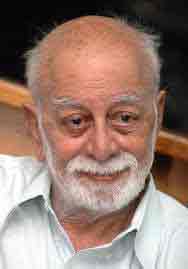
Right till the end of his life he never ceased to raise his voice against assaults on life, liberty and freedom of expression by the state, in particular the growing trend of communal witch-hunt in the name of curbing terrorism. He was scathingly critical of judges who advanced sympathetic arguments condoning caste atrocities like ‘honour’ killings.
He also helped found the Concerned Citizens’ Tribunal that investigated the communal genocide in Gujarat in 2002. Commenting on the genocide and the rights of minorities, he wrote, “The Muslims of Gujarat do not need compassion and pity. They need justice in all its facets as mentioned in the Preamble of the Constitution. It is their right. They don’t need charity or doles. What they need is political justice and to achieve this, prosecuting the criminals is imperative. That alone will ensure their dignity and restore their faith in the system; that alone can assure them that their individual and collective rights as a minority are protected. A formal compliance with the law or a routine engagement in the courts will not bring justice alive. One of the Articles in the Constitution states that justice — political, social and economic — shall inform all the institutions of the State. Our campaign for a secular democracy should commence from this Article.”
Deeply grieved by the untimely demise of his friend and fellow warrior for justice K Balagopal, he had written of him, “He wrested the right to audience from the court. In his competence that equalled the lawyers of the affluent, he was visible. He made the court conscious that he was appearing for a citizen or a collective of citizens for whose benefit the Constitution was created. His was a radical approach to the Constitution...”
However he had also expressed his own debate with Balagopal, that the those who interpret the law in favour of the poor should not be “bound by institutional norms.” Instead, he wrote, “My view...has always been that appearing for the poor and as lawyers for social change one should always attempt to break new ground or innovate and strive for its acceptance. We must make the contentions and the conceptions we innovate familiar in courts if they are to be accepted later. The legitimacy of the status quo and against social transformation is so strong in courts that it becomes necessary for lawyers of the poor to acquire the competence to contend with the opponents of social change. What is important is that poor people should be able to engage competent lawyers, more competent and much more committed than the lawyers for the affluent.”